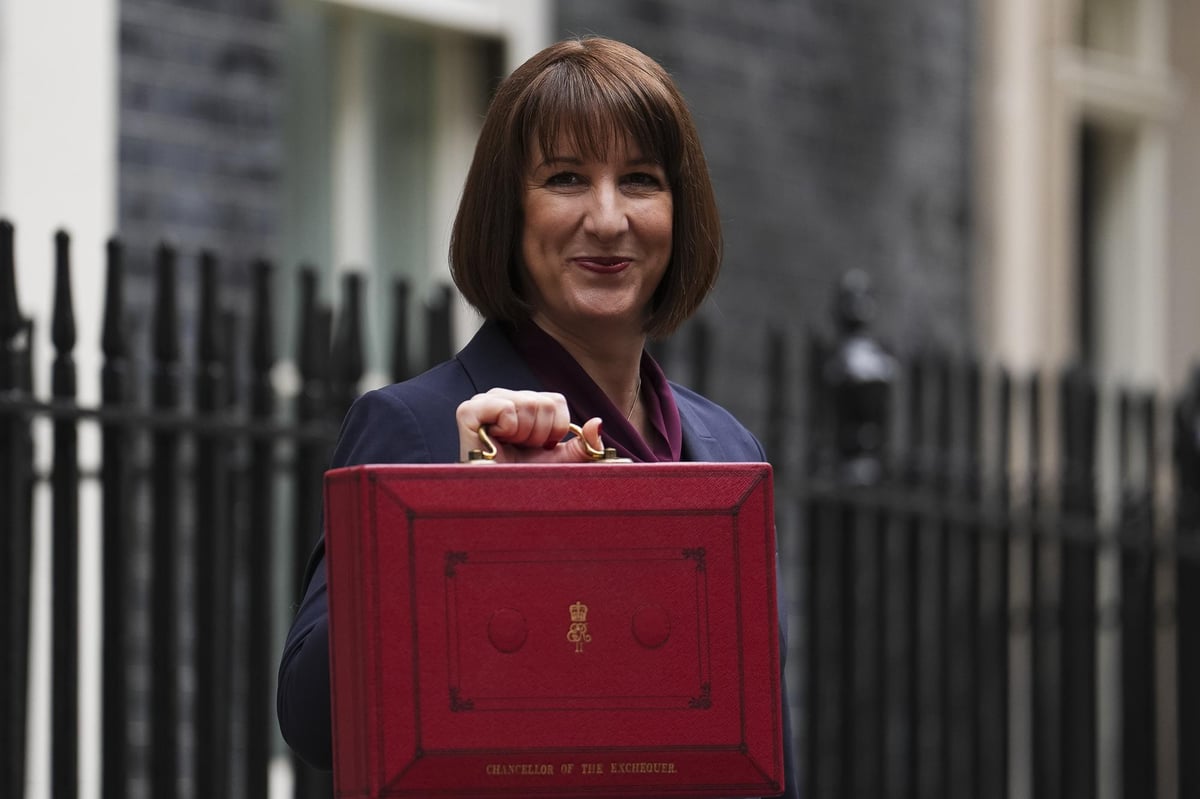Copyright scotsman

The latest government borrowing figures make for pretty grim reading and lay bare the uphill struggle Rachel Reeves faces to try and balance the nation’s books. Public sector net borrowing rose to £20.2 billion for September, some £1.6bn higher than in the same month last year and marking the highest level for the month of September in five years, according to official data. Soaring debt interest costs, pay rises and inflation increasing the UK government’s day-to-day running costs, and inflation-linked benefit increases all contributed to last month’s hefty deficit. Those costs more than offset the amount that was raised through taxes and national insurance. It means that Labour spent more on the public sector than it received in taxes and other income in September, requiring it to borrow billions of pounds. The Chancellor and her cabinet colleagues will argue that they are borrowing to finance major national infrastructure projects and stimulate growth, but questions remain over whether that can feed through to the private sector and ultimately the thousands of new jobs that the country badly needs. Analysts also point to the negative effect that Britain’s stubbornly sticky inflation rate - expected to remain well above 3 per cent for the coming year - is having on the nation’s finances. Danni Hewson, head of financial analysis at investment platform AJ Bell, said: “The Chancellor has hiked taxes on employers, announced infrastructure investments and planning reforms, and today promises to cut red tape for businesses. But all those tax-raising, growth-inducing measures haven’t been able to offset the weight piling up on the other end of the seesaw. “Inflation has insidiously woven its tentacles deep into the Treasury’s coffers, ratcheting up interest on the huge debt pile that’s mushroomed since 2020, inflating the cost of benefits and creating an economic backdrop where pay rises were inevitable. “Questions remain over how to stimulate growth, make consumers feel confident enough to spend their cash and convince businesses that now is the time to take their foot off the brakes and invest,” she added. The latest figures were released after Reeves acknowledged she is looking at potential tax hikes and spending cuts at her autumn Budget statement on November 26 in an effort to plug a black hole estimated to be in the tens of billions of pounds. Next month’s eagerly-awaited fiscal event comes amid a backdrop of lacklustre economic growth, inflation running at nearly double the Bank of England’s 2 per cent target - stoking stagflation fears - and mounting government debt costs. Yet, there was a sliver of hope for the Chancellor in the latest borrowing numbers with that headline figure coming in lower than most economists had been expecting and only slightly ahead of the £20.1bn that the UK's independent fiscal watchdog, the Office for Budget Responsibility (OBR), had forecast in March. However, borrowing in the current financial year, between March and September, hit nearly £100bn - the second-highest amount since monthly records began in 1993, after that of 2020, during the height of the pandemic response. Thomas Pugh, chief economist at audit, tax and consulting firm RSM, said: “Government borrowing came in almost bang in line with the OBR forecast in September, which is positive after August’s borrowing overshoot. What’s more, cumulative borrowing so far this year was revised down a little. “The bigger picture, though, is that cumulative borrowing is still significantly above the OBR forecast and the latest release still paints a picture of deteriorating public finances. The Chancellor will probably have to raise around £30bn at the Budget. “We expect fiscal drag, national insurance contributions’ base broadening and a salami slicing of other tax increases to do the bulk of the work with some pencilled in spending cuts to help at the end of the decade. The good news is that the Treasury seems to have acknowledged that another Budget-induced inflationary surge would be counter-productive and is taking steps to avoid that. “In addition, if true, reports that the Chancellor will significantly increase the headroom she has against her fiscal targets will go some way to avoiding another bout of uncertainty paralysing the economy next year.” Philip Shaw, an economist for Investec Economics, said the latest dataset “does not shift the dial on the bigger picture, which is that the Chancellor will have to find fiscal savings at her Budget on November 26.” He added: “Overall, it is disappointing that a better-than-expected growth background so far this year is not translating into a more favourable picture for the public finances.” Pension raid Nigel Green, chief executive of global financial advisory outfit deVere Group, believes that the UK’s borrowing crisis makes a pension tax raid at the Budget “almost inevitable”. He noted: “The numbers speak for themselves. Borrowing has surged far beyond expectations while growth remains flat and debt servicing costs are swallowing a larger share of national income. “When the Treasury finds itself under this kind of pressure, pensions are often first in line. They’re seen as an easy source of revenue that can be tapped quickly, even if the long-term consequences are severe. “From frozen allowances to lifetime limit changes, history shows that pensioners are the easiest targets. The political calculation is that they’re less likely to shift their financial arrangements or take to the streets, but that calculation underestimates how much confidence and capital are destroyed in the process,” Green warned. John Wyn-Evans, head of market analysis at Rathbones, added: “One result of fiscal tightening in the Budget could be a lowering of inflation pressure, especially if the Chancellor avoids measures that will not directly impact consumer prices (such as VAT increases). That could leave the way open for the Bank of England to be more aggressive in cutting interest rates.” Call to scrap ‘harmful’ cash ISA as Rachel Reeves eyes radical savings overall



